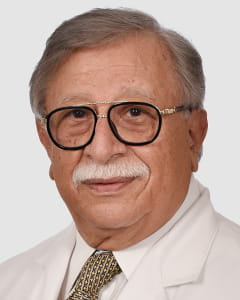Bariatric surgery has helped more than 220,000 people across the country lose weight and improve their health.
Even with all its benefits, bariatric surgery does not guarantee permanent weight loss. In fact, people who undergo certain weight loss procedures, such as gastric bypass, gastric sleeve or lap band surgery, gain about 8 to 10 percent of their weight back on average. Those who undergo weight loss procedures that restrict calorie absorption, such as duodenal switch, usually maintain their weight loss and experience 10 to 15 percent greater weight loss than the previous procedures I mentioned.
If you’ve had bariatric surgery or are considering a weight loss procedure, it’s important to understand that they are not a magic bullet. To maintain your weight loss after surgery, you’ll need to do much of the same things anyone else would do to maintain a healthy weight.
Understanding Weight Gain After Surgery
Sometimes people gain weight after bariatric surgery because they don’t continue to follow their doctor’s advice. Immediately after surgery, you may stick to the prescribed diet and eat as healthy as possible. However, you may resume old habits after several months—or even a few years—following surgery.
In other cases, it’s not eating habits that lead to weight gain. With some procedures, the stomach may expand after surgery. After gastric bypass surgery, for example, we staple the stomach to create a small pouch that only holds one ounce of food at a time. However, the stomach pouch may stretch beyond this limit, causing you to absorb more calories than you should. Sometimes, a corrective procedure can address this issue. But even in these cases, it’s still important to follow your doctor’s prescribed post-surgery plan.
Causes of Weight Gain
Not Sticking to a Balanced, Healthy Diet
Developing healthy habits and losing weight before surgery can make your post-surgery transition easier.If you snack a lot or love to indulge in certain foods, curbing these inclinations or finding healthy substitutes for them before surgery is really important.
Following a healthy diet filled with whole grains, fruits, vegetables and plenty of lean protein can help you maintain your post-surgery weight.
Initially after surgery, most people must adhere to a full liquid diet for several weeks. However, after this time period, they can begin a longer-term diet. People who have had sleeve gastrectomy and gastric bypass need 60-80 grams of protein a day after surgery. For duodenal switch patients, that number is 80-100 grams a day. That’s because protein keeps you full and is critical to helping the body repair and replace tissues and fight infections. Lack of protein can lead to hair loss, fatigue and muscle loss, so it’s an important part of any post-surgery diet.
You also should pay close attention to your blood sugar. Minimize or avoid simple carbohydrates such as white bread and white rice and sweets like candy, donuts and ice cream. Instead, focus on complex carbohydrates and high-fiber foods like fruits, vegetables and whole grains.
Too Much Alcohol & Caffeine
Alcohol and caffeine contain a lot of sugar and empty calories. You should drink these beverages in moderation—or not at all if they are triggers for you.
After surgery, drink plenty of water, eat soups and drink mostly sugar-free clear fluids, like decaffeinated tea, G2 Gatorade, Vitamin Water Zero and Crystal Light. Dehydration is a concern after surgery, and not consuming enough fluids can lead to continual vomiting that could cause vitamin deficiencies. Aim for 64 ounces of clear fluids to stay hydrated every day.
Lack of Support
We all need support at some time in our lives. Joining a weight loss surgery support group can help. Talking to people who also have undergone weight loss surgery can make you feel less alone in your journey. Studies have shown that people who actively participate in these groups have about a 10 percent lower body mass index compared to those who do not.Nutritional counseling also is very important. Most hospitals offer this service through a comprehensive program focused on long-term weight loss. This is a great resource for many bariatric patients, allowing them to work with a dietitian or nutritionist to monitor their diet and health after surgery. The key is to be actively engaged in the process and follow the advice of professionals who are there to help you.
Maintaining a healthy weight long term is difficult for anyone, but it can be especially challenging after bariatric surgery when you must completely change your approach to food. No one wants to feel like they are on a diet all the time, but you should treat these dietary changes as part of new, healthy long-term lifestyle. If you’re concerned about regaining weight after surgery, plan your meals in advance. Carry healthy snacks with you to stave off cravings for unhealthy foods, and seek the help of a nutritionist, dietitian or personal trainer when you need it. Keeping the weight off for the rest of your life is hard, but with the right support you can do it.










